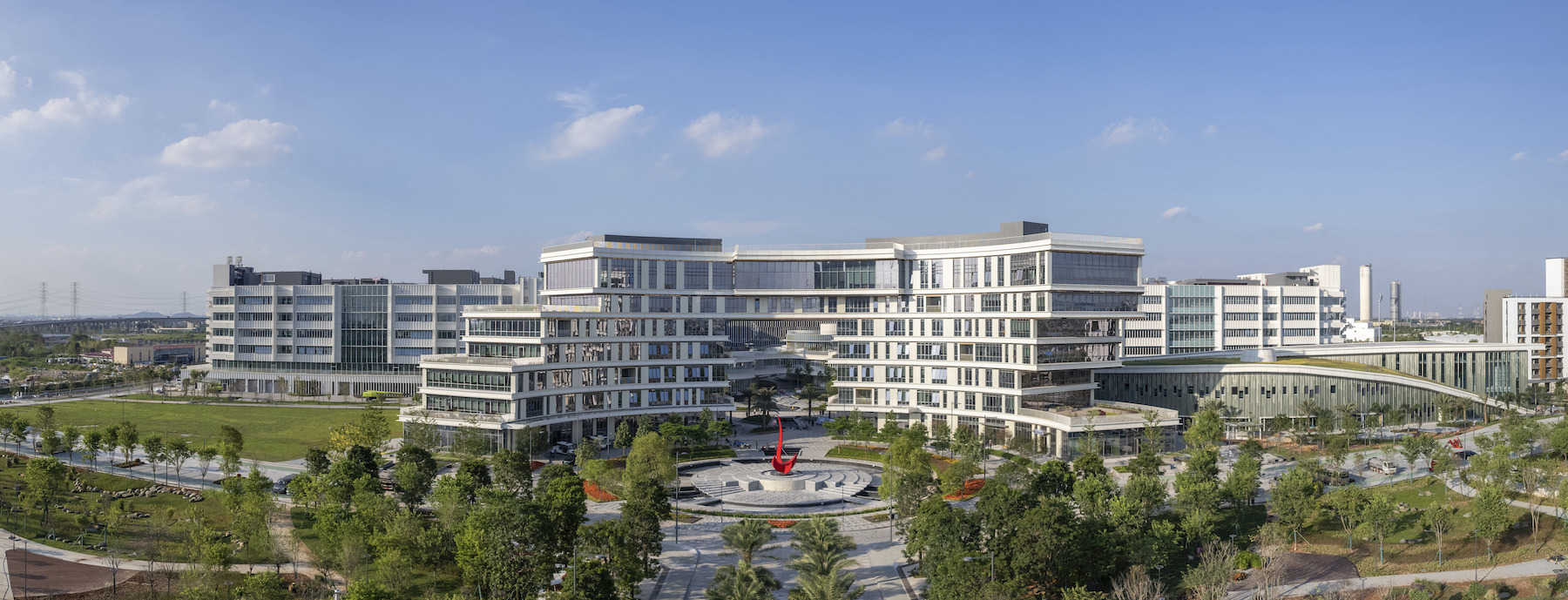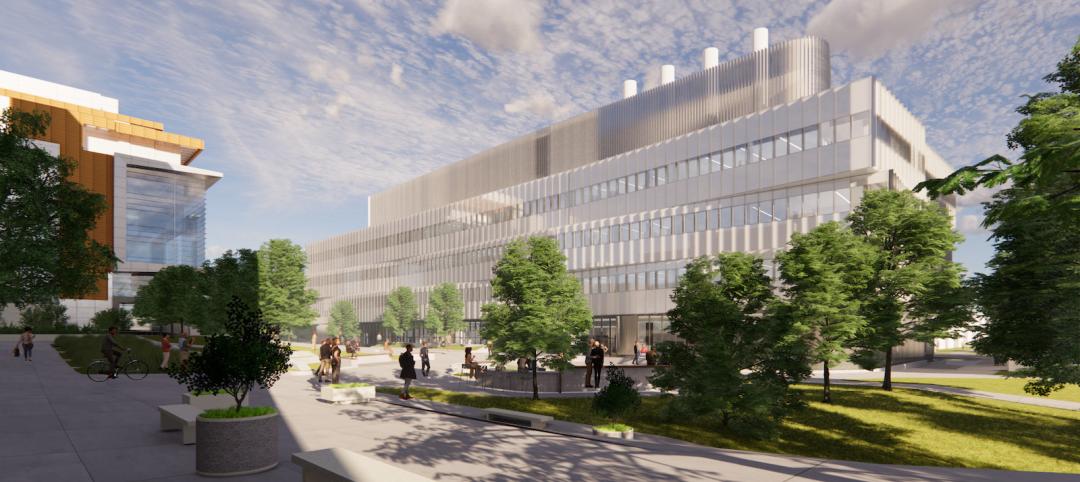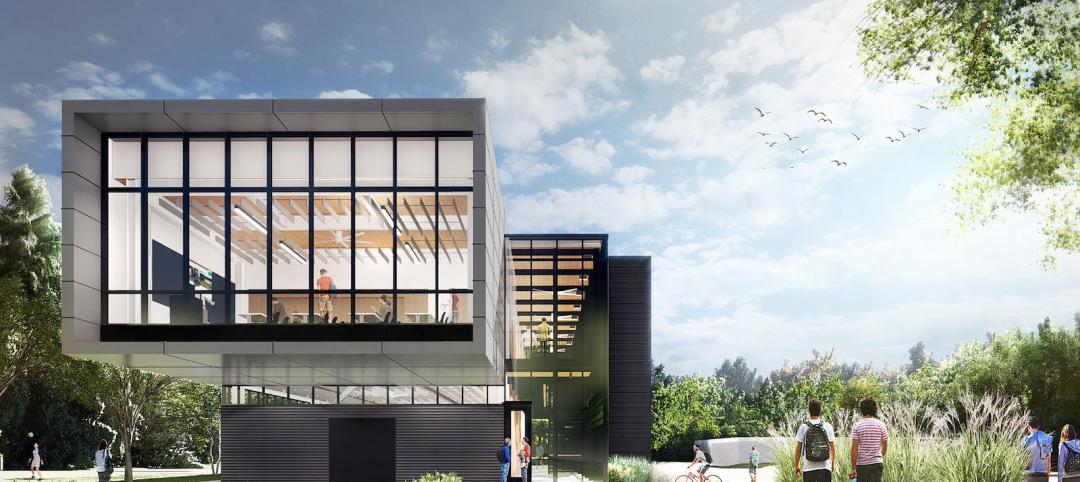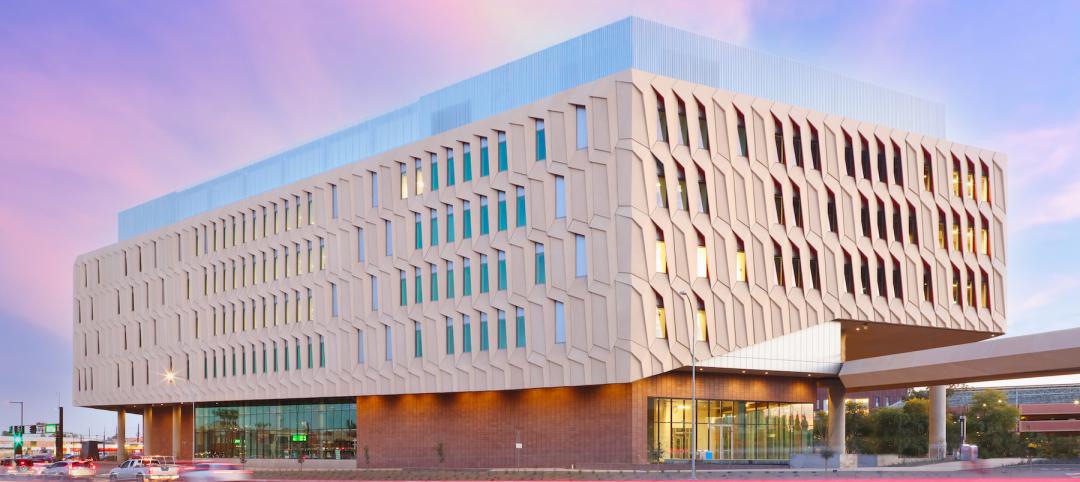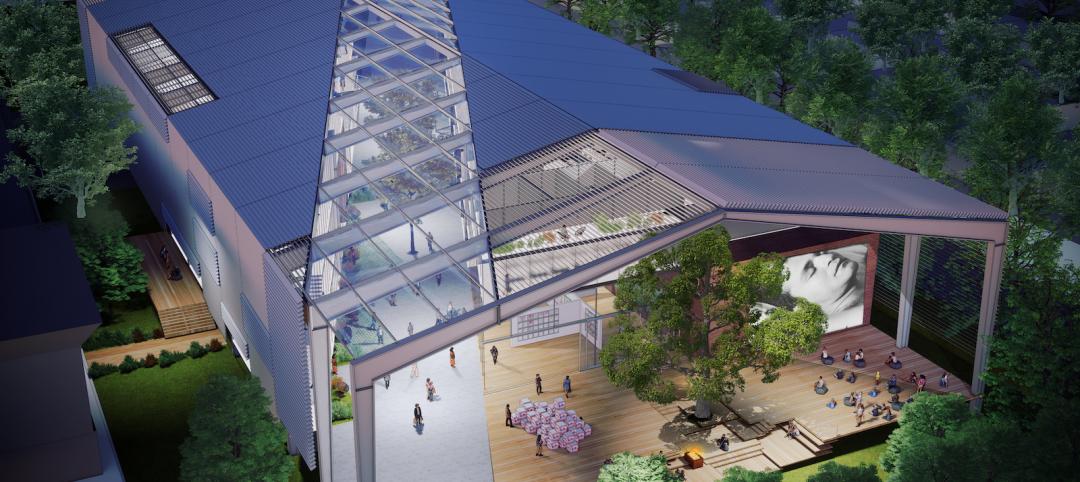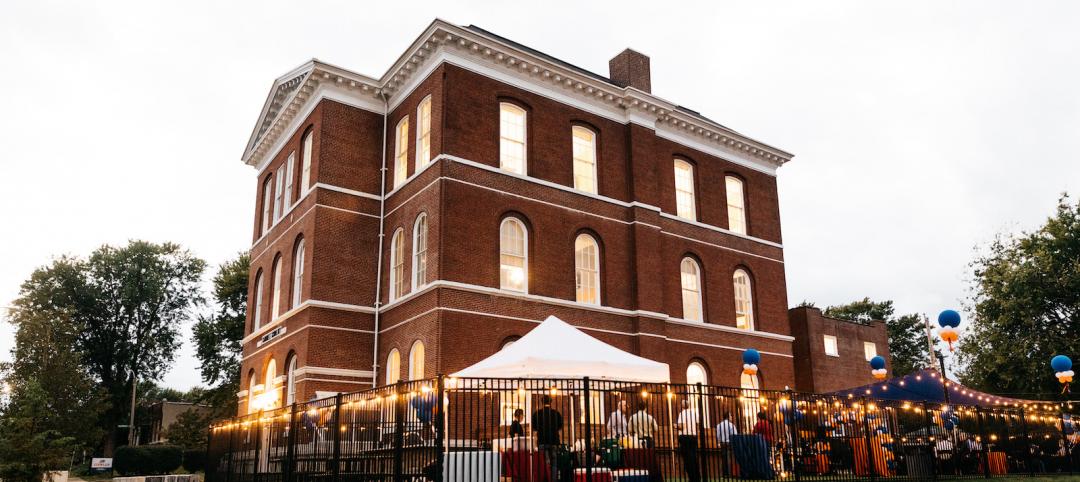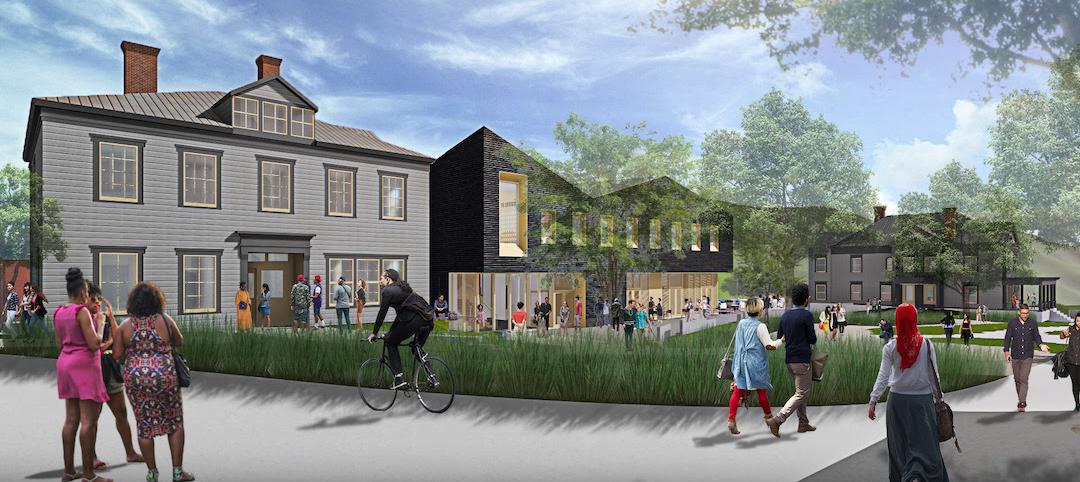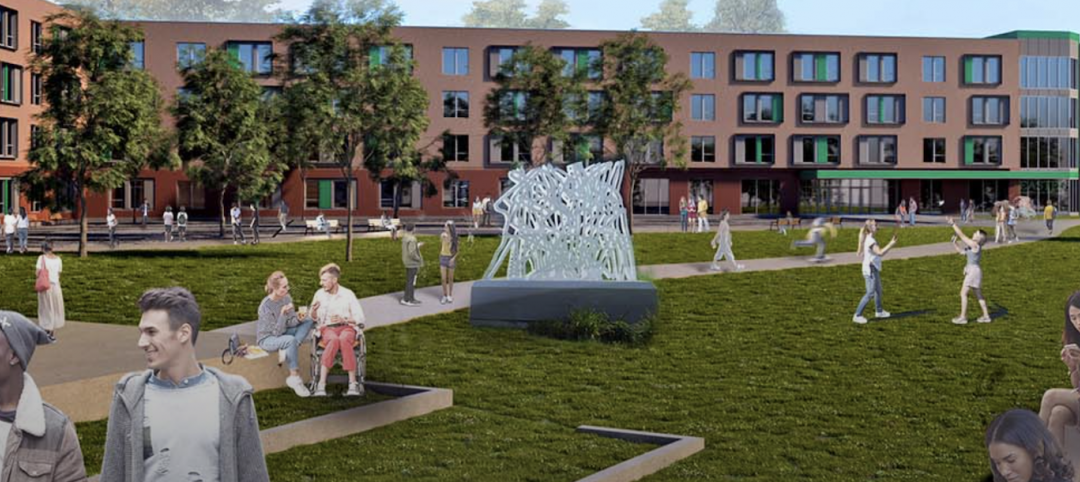In early September, the Hong Kong University of Science and Technology (HKUST) officially opened its new, KPF-designed campus in Nansha, Guangzhou (GZ). The carbon-neutral-ready campus was planned, designed, and built in three years’ time, with a project team comprising over 70 architects and planners across KPF offices in New York, Shanghai, Hong Kong, and Singapore.
The project’s first phase includes nearly 6 million square feet (about 550,000 square meters) for over 4,000 graduate students and 400 faculty members. It provides research facilities for subjects such as robotics and autonomous systems, smart manufacturing and transportation, microelectronics, and atmosphere and ocean systems.
Rather than following a traditional academic structure based on schools and disciplines, HKUST(GZ) centers around a project-based learning model that encourages multi-disciplinary interactions. The campus features eight research and lab buildings, connected by shaded arcades, and a full range of teaching spaces, including seminar classrooms, labs, large lecture halls, maker spaces, and collaborative workspaces.
“Landscape and building spaces come together to create an atmosphere where scientists will be energized and inspired to innovate,” James von Klemperer, KPF president, said in a statement.
From day one, HKUST(GZ) achieves a 54 percent reduction of carbon emissions, with a goal of reaching carbon neutrality before 2060. The plan’s environmental and resiliency measures have been designed for Guangzhou’s hot, humid climate and the rapidly urbanizing area’s flooding, seismic, and climate change risks.
When complete, the campus will accommodate more than 10,000 students and faculty. And it will integrate teaching and learning facilities with housing, neighborhood and campus retail, student life programs, administration, hotel, office and incubator spaces, and athletics facilities.
The HKUST(GZ) campus adds to KPF’s portfolio of research, innovation, and academic facilities around the world, including the CUNY Advanced Science Research Centers in New York City, the University of Michigan’s Detroit Center for Innovation, and NYU’s new Qiantan campus in Shanghai.
On the Building Team:
Owner: Hong Kong University of Science and Technology
Design architect: Kohn Pedersen Fox (KPF)
Architect of record: SCAD (Architectural Design & Research Institute of South China University of Technology Co.)
MEP engineer: ARUP
Structural engineer: ARUP
Landscape design: James Corner Field Operations
General contractor/construction manager: central hub: China Railway First Group Co. and China Railway Guangzhou Engineering Group Co.; other areas:
Canton One Construction Group Co. and Guangzhou Construction Engineering Co.
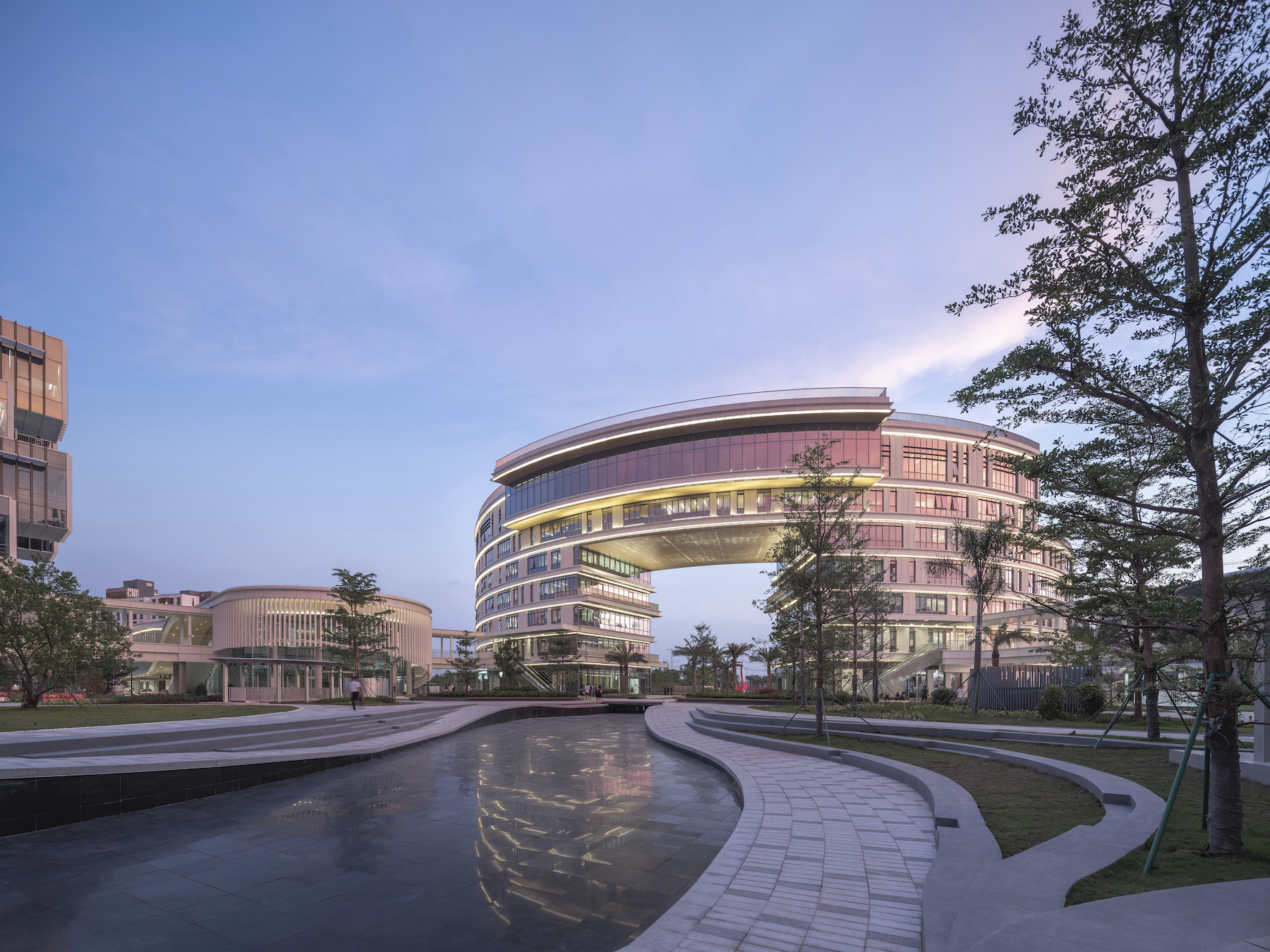
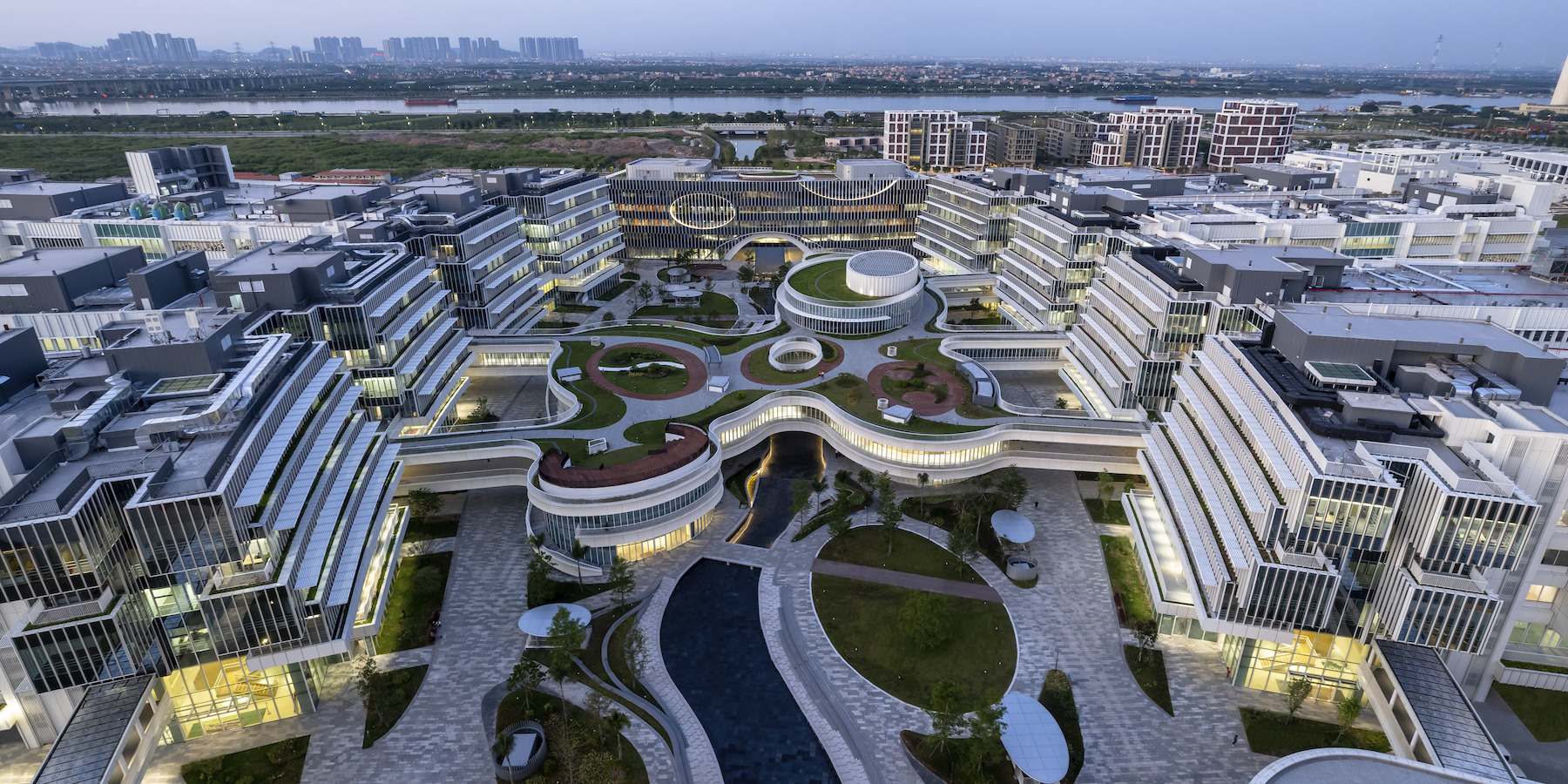
Related Stories
University Buildings | Mar 4, 2022
The University of Wisconsin-Milwaukee celebrates new chemistry building with groundbreaking
The building will serve as a gateway for all STEM and health science related majors, housing the Department of Chemistry and Biochemistry.
Higher Education | Mar 1, 2022
SRG Partnership designs a nautically inspired space for maritime science
A community college in Oregon has begun construction on a new building devoted to maritime science. With it, the school hopes to solidify its position as a major industrial and marine technology center in the Pacific Northwest.
Education Facilities | Feb 24, 2022
New ASU science and tech building features innovative sustainability elements
Arizona State University’s Interdisciplinary Science and Technology Building 7, completed in December 2021, was constructed with numerous innovative sustainability elements.
University Buildings | Feb 18, 2022
On-campus performing arts centers and museums can be talent magnets for universities
Cultural facilities are changing the way prospective students and parents view higher education campuses.
University Buildings | Feb 18, 2022
UPenn converts a library past its prime to a tech-integrated learning and maker
In September 2021, Penn reopened its renovated and expanded library as an open center for cross-disciplinary learning, prototyping, and collaboration. Now called Biotech Commons, the 17,000-sf building supports new modes of research by offering a range of spaces and services that is free to be scheduled by any student or faculty member.
University Buildings | Feb 17, 2022
A vacated school in St. Louis is turned into a center where suppliers exchange ideas
In 1871, The Carondelet School, designed by Frederick William Raeder, opened to educate more than 400 children of laborers and manufacturers in St. Louis. The building is getting a second lease on life, as it has undergone a $2 million renovation by goBRANDgo!, a marketing firm for the manufacturing and industrial sectors.
University Buildings | Feb 15, 2022
Ohio University's Chilled Water Plant #3 brings high design to a campus utility
Leers Weinzapfel Associates has also designed chiller plants on the campuses of Princeton University, the University of Pennsylvania, Tufts University, the University of Massachusetts Amherst, Harvard University’s Allston Campus, and the Ohio State University.
University Buildings | Feb 14, 2022
Leers Weinzapfel Associates to renovate, expand the Williams College Davis Center
The project will add almost 8,000 sf of space.
Coronavirus | Jan 20, 2022
Advances and challenges in improving indoor air quality in commercial buildings
Michael Dreidger, CEO of IAQ tech startup Airsset speaks with BD+C's John Caulfield about how building owners and property managers can improve their buildings' air quality.
University Buildings | Jan 19, 2022
Eastern Michigan University launches major student housing project
The institution is working with Gilbane Development Company to build or renovate more than 2,700 on-campus beds.


